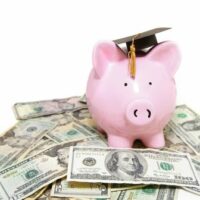Student Loan Program And Repayment Through A Bankruptcy Proceeding

Federal student loans have been in forbearance since 2020. Beginning in January 2023, borrowers will once again need to begin making payments on federal student loans. While President Biden has announced plans to forgive $10,000 of student loan debt for each federal student loan debt holder, and up to $20,000 for debtors who received Pell grants, there will still be many debtors who still have student loan debt and will face default in 2023 and beyond. A Student Loan Program can provide debtors who file for Chapter 13 bankruptcy with tools for repaying student loan debt. Our West Palm Beach bankruptcy attorneys can provide you with more information about the program and how it works.
What is the Student Loan Program (SLP)?
The Student Loan Program (SLP), according to the United States Bankruptcy Court for the Southern District of Florida, is a program that was “established under Administrative Order 2021-02.” It is “designed to function as a forum to provide individual debtors with the tools necessary to explore feasible repayment options with their student loan lenders and other interested parties under the administrative oversight of the United States Bankruptcy Court for the Southern District of Florida.”
It is an option for repayment of government-backed student loans through a bankruptcy proceeding. Debtors with private student loans can also be eligible. Accordingly, if you still owe student loan debt after $10,000 (or $20,000, depending upon your circumstances) is forgiven and you cannot repay the debt, you could have options by filing for Chapter 13 bankruptcy.
Eligibility to Participate in the Student Loan Program
What will you need to do in order to be eligible to participate in the Student Loan Program? First, this Program is specifically for debtors who initially file for Chapter 13 bankruptcy or who convert their cases to Chapter 13 bankruptcy. After filing for Chapter 13 bankruptcy, a debtor will need to have fully paid the bankruptcy filing fee in order to be eligible for the Program.
Once a debtor is eligible, they will file a Notice of Participation in the program based on whether they are represented by an attorney or are self-represented (i.e., pro se). As part of the bankruptcy case, debtors can explore various options for repayment of their student loans. For federal student loans, the debtor will be able to consolidate student loans in order to be eligible for an income-driven repayment (IDR) option. Debtors can also use Department of Education programs that can include standard repayment, extended repayment, or graduated repayment plans. For debtors who previously had a Chapter 13 repayment plan confirmed prior to entering into an IDR plan, the debtor can request to modify the existing Chapter 13 plan.
Other options are available for Chapter 13 debtors who have private student loans. An experienced bankruptcy attorney can speak with you about your options.
Contact a West Palm Beach Bankruptcy Attorney
If you have questions about the Student Loan Program for Chapter 13 bankruptcy filers or how it may be able to benefit you, it is important to get in touch with an experienced West Palm Beach student loan bankruptcy lawyer at Kelley Kaplan Delaney & Eller, PLLC, to discuss your situation.
Sources:
flsb.uscourts.gov/sites/flsb/files/documents/general-orders/AO_2021-02_Adoption_of_Student_Loan_Program_for_Debtors_in_Chapter_13_Cases.pdf
flsb.uscourts.gov/student-loan-program-slp



